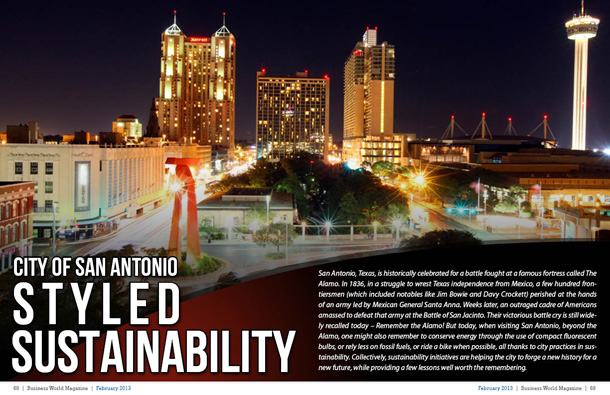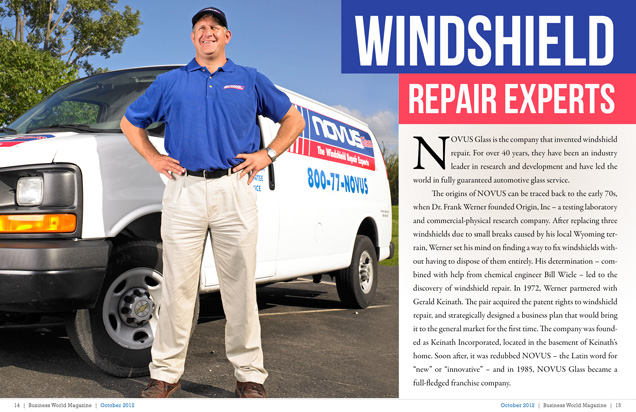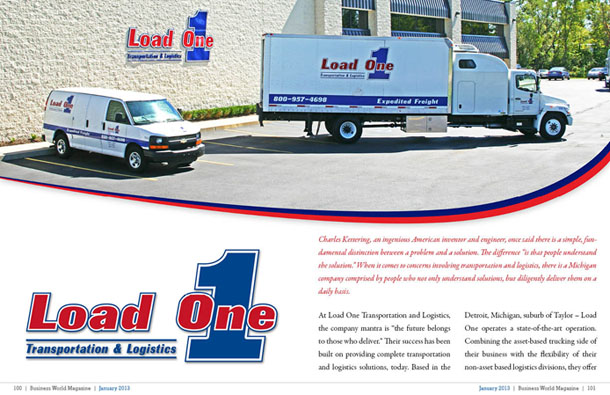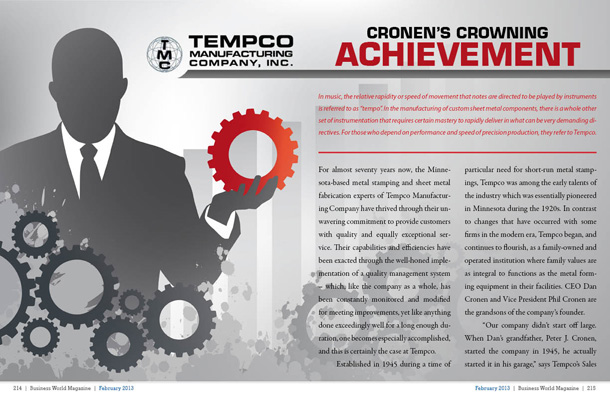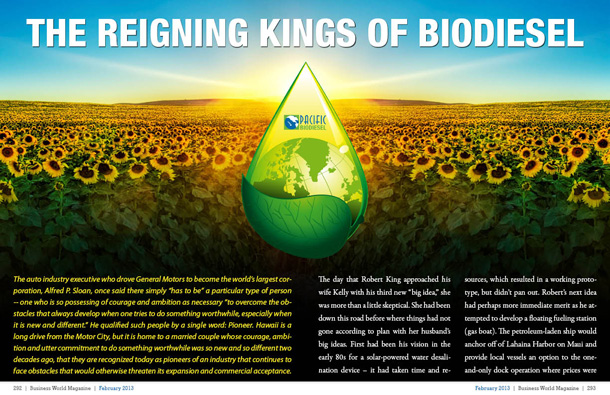
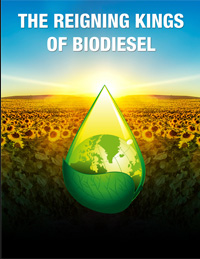
The auto industry executive who drove General Motors to become the world’s largest corporation, Alfred P. Sloan, once said there simply “has to be†a particular type of person — one who is so possessing of courage and ambition as necessary “to overcome the obstacles that always develop when one tries to do something worthwhile, especially when it is new and different.†He qualified such people by a single word: Pioneer. Hawaii is a long drive from the Motor City, but it is home to a married couple whose courage, ambition and utter commitment to do something worthwhile was so new and so different two decades ago, that they are recognized today as pioneers of an industry that continues to face obstacles that would otherwise threaten its expansion and commercial acceptance.
The day that Robert King approached his wife Kelly with his third new “big idea,†she was more than a little skeptical. She had been down this road before where things had not gone according to plan with her husband’s big ideas. First had been his vision in the early 80s for a solar-powered water desalination device – it had taken time and resources, which resulted in a working prototype, but didn’t pan out. Robert’s next idea had perhaps more immediate merit as he attempted to develop a floating fueling station (gas boat). The petroleum-laden ship would anchor off of Lahaina Harbor on Maui and provide local vessels an option to the one-and-only dock operation where prices were so high as to shiver the timbers of any sailor. Robert had designed the fueling ship, formulated the plan and gained some traction, but alas, this concept too drowned in the water.
And it wasn’t as if the Kings weren’t already successful. They had what Kelly describes as “a working business†in a generator dealership that was doing very well. Robert was already kept sufficiently busy having been contracted to service and maintain generators throughout the community. So, with respect to the new idea, no one could blame Kelly for asking her husband, “Why now?†Robert made his convincing case, a case that encompassed not only cost and supply issues relative to the use of petroleum products, but also environmental concerns arising from the discarded deluge of used cooking oils that were mucking-up area landfills. Robert’s proposal was to devise a method for capturing and refining that material to create biodiesel. “Bio-what?†was Kelly’s initial response.
Industry Pioneer
It took only a year following that conversation, and in 1996 the Kings processed their first biodiesel and established Pacific Biodiesel. Now headquartered in Kahului, Hawaii, the firm’s first small-scale plant was the first commercially viable biodiesel operation in the United States. Pacific Biodiesel has since been fueling generators, commercial fleets, farm equipment, county busses, military and county vehicles, not to mention hundreds of personal vehicles, on the refined, residual energy of materials once discarded – used cooking oil and the gooey mess collected from local restaurant grease traps.
Beyond solving an environmental problem, the Kings helped launched an industry by creating a working system, which helped spur on other similar businesses. Two years later Robert was approached by a Japanese businessman who owned about 30 Kentucky Fried Chicken franchise operations in Nagano, Japan. Noting the success with used cooking oil, Soichiro Yoshida sought Pacific Biodiesel’s expertise and contracted the company to build a plant in Nagano. After completion of this project, Pacific Biodiesel returned the focus on Hawaii and built a facility in Honolulu with twice the capacity of the original Maui plant. In its 17 years of success, Pacific Biodiesel has built 12 plants throughout the United States. The company’s newest project, Big Island Biodiesel, recently launched production on the island of Hawaii.
Biodiesel fuel is non-toxic and biodegradable. Studies show that using biodiesel substantially reduces the emission of pollutants, specifically the hydrocarbons, carbon monoxide and sulfates that contribute to global climate change. Pacific Biodiesel’s community-based biodiesel production model has not only helped alleviate the environmental hazards of dumping waste oils, but has also helped diminish demand for fossil fuels, created quality local jobs and put us on a path to true energy security.
Although the benefits of biodiesel are more widely understood today, that wasn’t always the case. The Kings can be credited for helping the entire industry by proving that biodiesel is safe and highly sufficient in a variety of applications. As Kelly explains, the company began production before fuel emissions standards had been established for this segment of industry. She says basic misunderstanding and “push-back†from big oil created more than a few bumps on their road to success.
In its early history, Pacific Biodiesel helped regulators by providing data essential to testing and creating emission standards. As those standards have evolved over the years, the company has invested in much R&D, resulting in technology and efficiency innovations, and shared some of its intelligence with other companies, which has not only contributed to the improvement of their own products, but the overall betterment of the industry.
Industry Advocacy
To better overcome misperceptions and misinformation, the Kings have also engaged in the creation of coalitions whose mission is to provide the facts about biodiesel. Organizations have been created in Texas as well as the Pacific Northwest, but the largest and most authoritative industry sustainability support institution is an organization known as the Sustainable Biodiesel Alliance (SBA). The SBA has not only provided a voice for all who work towards sustainability in this industry, but is the repository for researched data and best-practices models. The SBA is currently helping to create a certification system that Kelly says “is designed to provide a greater degree of assurance as to the quality, sourcing and sustainability of U.S.-produced biodiesel.†She acknowledges that some in the industry had taken advantage of loopholes in government incentives. In other cases, the desire to develop biofuel feedstock in fertile foreign lands has led to deforestation, which further cast a negative spotlight on these materials as a viable, alternative fuel. While these issues are legitimate concerns, she maintains there have been too many instances where facts have been distorted, making the work of the SBA all the more critical to separating fact from myth and advancing understanding and acceptance.
Today’s biodiesel can be produced to look and operate as efficiently as traditional diesel fuel, often at a lower cost, and certainly with less detriment to the environment. The recognition of that fact has helped Pacific Biodiesel garner honors from stalwart organizations, including the U.S. Department of Energy, the American Society of Mechanical Engineers, the Solid Waste Association of North America, U.S. Small Business Association and the Industrial Development Organization of the United Nations.
FUTURE FOCUS
At present, Pacific Biodiesel is engaged in researching crops from which biodiesel feedstock can be effectively extracted. One of the deliverables of this federally funded project is to share findings with the local agriculture industry so that others will have greater insight about the types of plants, growing cycles, harvesting periods and associated environmental conditions of climate and soil composite, which in time, will culminate in further innovations to guide both the agriculture and fuel industries toward a sustainable future.
The Pacific Biodiesel team has been encouraged by the preliminary results of their crop trials. Sunflower, safflower and camelina are a few of the species tested which offer multiple harvesting cycles in Hawaii and are also a potentially quick source of feedstock, resulting in the ultimate energy security. For this project, the motto is “100 days from soil to oilâ€. Most of the crops being tested require only 25% of the water typically used in the cultivation of sugar cane. Another benefit is that once the oil is extracted, the resultant seedcake can be used to create nutrient-rich meal sorely needed by the local cattle industry. Cattle operations in Hawaii have declined by almost 70% due to inability to feed livestock on island. Cattle have been routinely shipped to mainland U.S. for feeding before being returned to the islands Tests involving the meal have shown high protein levels as well as palatability.
While encouraged by the potential to assist the Hawaii cattle industry, Pacific Biodiesel is currently providing employment for more than 150 people through its combined operations. Of all the honors and recognitions bestowed upon Pacific Biodiesel, Kelly is especially proud of the company’s Green Jobs Award. She says that enthusiasm for the Pacific Biodiesel mission and seeing local families supported by quality jobs, make for an exceptional working environment.
“Everyone here, whether it is a truck driver collecting feedstock, a fuel processor, office clerk or senior manager, understands what we’re about and is committed to the work,†says Kelly King.
Customers are also considered by the company to be pioneers and environmental heroes. “We have people who come to the pump to purchase locally made biodiesel who thank us as they pay. You never see that at a gas station,†she adds.
And though Pacific Biodiesel has proven profitable and performed as a successful business model, Kelly stresses the importance of redefining routine ideas about the nature of wealth or riches, saying, “Often we struggled, but we always knew we were doing the right thing. Our vision of success wasn’t always focused on the net bottom line, and sometimes you have to have a different definition of success. If you can benefit the community, if you can make a difference in the world, if you maintain your principles and develop a reputation as a doer with integrity, that’s a huge payback … and if you can make a living at it, it’s like winning the lottery.â€


